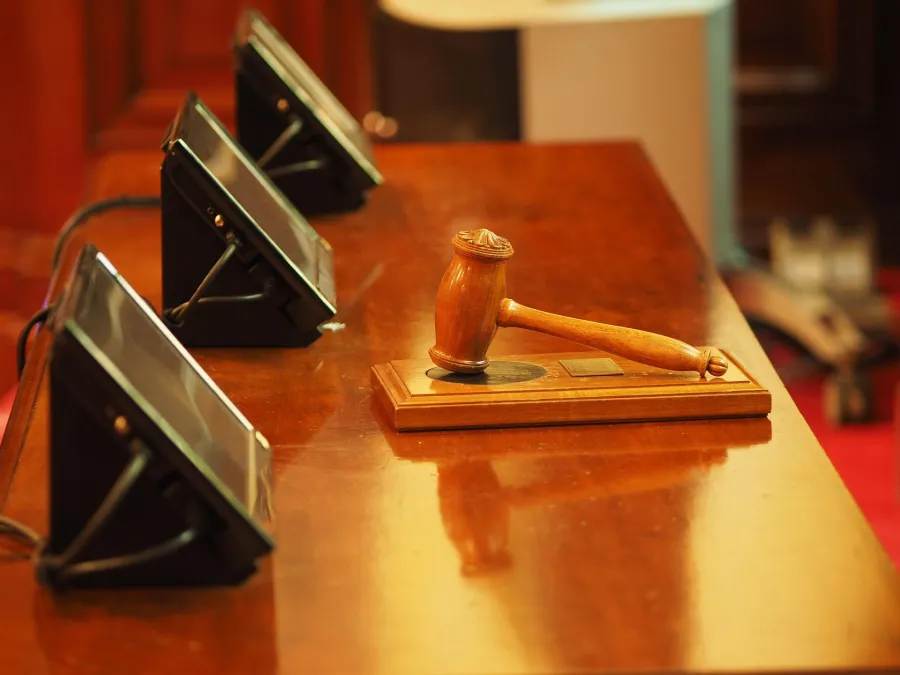ADVISORY: Iowa Supreme Court to Hear Oral Arguments in Two Collective Bargaining Cases on Wednesday

MEDIA ADVISORY
FOR IMMEDIATE RELEASE
CONTACT: Mazie Stilwell, AFSCME Council 61, (515) 246-2637
Jean Hessburg, ISEA, (515) 314-8799
The Iowa Supreme Court will hear oral arguments in two collective bargaining cases on Wednesday, December 12. Oral arguments will begin at 9:00 am, with approximately 35 minutes allotted per case. Both cases challenge Iowa’s new collective bargaining law passed in January 2017. AFSCME Council 61 President Danny Homan and ISEA President Mike Beranek will both be available for interviews inside the main doors of the Iowa Judicial Branch building from 8:00 – 8:30 on Wednesday morning.
In the case of AFSCME Council 61, et al v. State of Iowa and Iowa Public Employment Relations Board, AFSCME is asking the Court to consider whether the new collective bargaining law:
- Violates Article I, Section 6 of the Iowa Constitution by granting greater collective bargaining rights to some public employees but not to other identically-situated public employees; and
- Unconstitutionally infringes on Plaintiffs’ right to associate with and be represented by AFSCME Council 61.
“We believe that justice will prevail for the hardworking, dedicated public employees of this state who have had their rights unconstitutionally stripped away,” said Danny Homan, President of AFSCME Council 61.
The case is filed under Iowa Supreme Court Case #17-1841
In the case of Iowa State Education Association (ISEA) and Davenport Education Association (DEA) vs. State of Iowa, Iowa Public Relations Board, Mike Cormack, Jamie Van Fossen and Mary Gannon, ISEA is asking the Court to consider whether the new collective bargaining law:
- Violates the Uniformity Clause found in Article I, Section 6, of the Iowa Constitution because it establishes different collective bargaining rights for bargaining units containing less than 30 percent public safety employees; and
- Violates the Uniformity Clause of the Iowa Constitution because it prohibits the use of payroll deduction for payment of employee organization dues, while continuing to allow such payment for dues connected with professional or trade organizations.
Among ISEA’s arguments is that so long as all public employees are treated in the same class under Iowa’s no strike provisions, they must be treated the same under Iowa’s new collective bargaining law. To do any differently is creating a “special class” of public employee and violates the Uniformity Clause of the Iowa Constitution.
"The Supreme Court is the next step in our fight to win back the rights taken from our members by the Iowa Legislature," said Mike Beranek, ISEA President.
"Our hope is that the Iowa Supreme Court understands what this case is really about. It is for the heart and soul of Iowa’s working men and women. We will continue fighting hard for our members to ensure that they receive the same rights and privileges enjoyed by other employees. We will also continue to fight for the students in our care. Our professional environment is their learning environment, said Beranek”
The case is filed under Iowa Supreme Court Case #17-1834.
The ISEA represents preK-12 educators, education support professionals, community college faculty, Area Education Agency professionals, retired educators and aspiring educators with contracts covering more than 50,000 employees. We promote quality public education by placing students at the center of everything we do while advocating for education professionals.
The American Federation of State, County, and Municipal Employees Council 61 represents 40,000 public employees in Iowa including law enforcement and correctional officers, firefighters, mental health workers, professional school staff, emergency responders, and many other workers. AFSCME Council 61 also represents home health care and child care providers across the state and private sector workers at Prairie Meadows, Palmer College of Chiropractic, Des Moines University, and ABM (Marshalltown).
--00--
